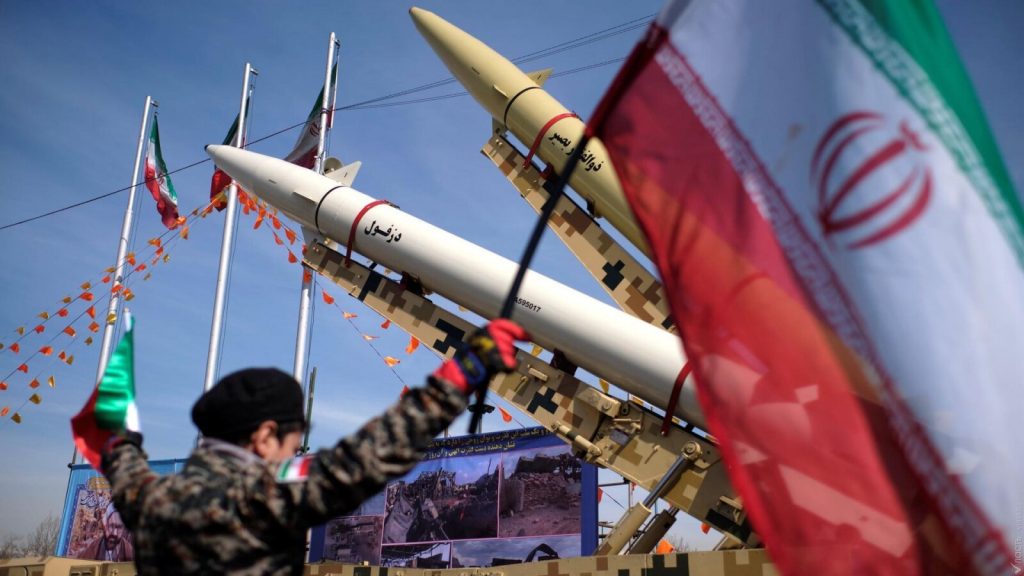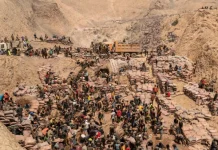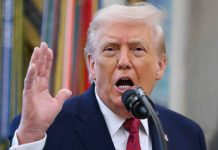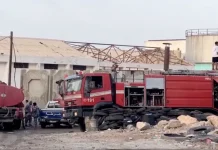Powerful and developed states often disregard the policies they create; in contrast, weaker states must adapt in order to safeguard their security. In the case of Iran, the nuclear program is due to selective enforcement of international law, which forces countries to act in self-defence. Iran does not seek to dismantle the existing international order, rather its aim is to deter aggression and preserve its sovereignty in a hostile geopolitical environment. This sense of insecurity is intensified by Iran’s perception of regional threats.
Iran wants to attain nuclear capability due to deep-rooted fear of vulnerability. With a constant nuclear threat in the region, Iran does not feel secure. Instead, the U.S. and its allies, like nuclear-armed Israel see it as a target. Ongoing economic sanctions, cyber-attacks and scientific terrorism further convince Iranian leaders that external forces will try to seize control of their nation, only credible nuclear capability can safeguard against unprovoked hostility.
For Iran, advancing technologies, including nuclear energy for electricity, medicine, and research, serve as symbols of national pride and self-sufficiency and gives acceptance to the regional power perception Tehran holds of itself. The country signed the Nuclear Non-Proliferation Treaty (NPT) in 1974, and it allowed all members to have the right to develop nuclear energy for non-military uses. However, Iran has faced sanctions, while other nations pursue their nuclear programs freely.
Iran’s perception of injustice stems from what it sees as unjustified discrimination, fuelled by geopolitical bias. The world is divided into two distinct and permanent classes, the NPT allows five countries to monopolize nuclear power while restricting the other “non-nuclear countries”, barring their access to military-grade arms indefinitely. In contradiction to their disarmament commitments, nuclear states continue modernizing their nuclear arsenal, proving they have no intention of abiding by international treaties.
Furthermore, the US-India nuclear agreement in 2006 demonstrated favouritism towards India, a known nuclear power that opted out of the NPT, received civilian nuclear technology and fuel access. Under the NPT, non-nuclear states face disproportionate restrictions, while nuclear-armed signatories continue their programs with impunity.
Even more troubling, non-NPT countries like India, Pakistan, and Israel have developed nuclear weapons without facing significant international consequences. Israel is believed to have a substantial nuclear stockpile, yet does not sign the NPT or permit IAEA inspections. Even so, Israel receives unwavering support from Western nations. In contrast, Iran has abided by the treaty, accepted inspections, and cooperated with the IAEA, yet is treated as an international outcast. Because of this, Iran is forced to contemplate its options of adhering to the NPT and denying the IAEA access to inspect its nuclear sites.
Ultimately, the greater concern is not Iran’s potential nuclear weapons, but the threat of it withdrawing from the NPT. This is similar to North Korea’s withdrawal from the NPT in 2003 after which they conducted nuclear tests and continue to build their nuclear arsenal. Such an action would remove all transparency and safeguards. Without Iran’s cooperation with the IAEA, the world would have zero insight into Iranian nuclear activities. Iran could then actively seek nuclear arms, setting off a chain reaction of instability and collapse of the global non-proliferation framework.
There are still worries despite Iran’s constant claims that its nuclear program is peaceful. Iran’s influence over Middle Eastern proxy groups and its ballistic missile program serve as proof that the region could become even more unstable if Iran was to acquire nuclear weapons. The opponents argue that even in the event that Iran does develop a bomb, the threat of a regional arms race could lead to Saudi Arabia, Turkey, and Egypt developing their own programs in retaliation.
These worries are legitimate and cannot be disregarded. Far more dangerous would be a Middle East with nuclear weapons. Furthermore, deterrence carries the risk of miscalculation even though it may prevent war. The fear is about escalation and irreversible consequences, not just the use of a weapon.
Iran’s nuclear program is a logical reaction to an unfair and illogical international system; it is not irrational. Restoring trust requires lifting unnecessary sanctions, implementing equal rights for all NPT members, and restoring the 2015 nuclear deal (JCPOA) with enforceable guarantees. In the absence of these steps, the world faces the threat of not only a nuclear-armed Iran but also the breakdown of the system that is supposed to stop it.
Iran’s nuclear program is a protest against international hypocrisy as well as a symptom of regional instability. The world must start by acting fairly if it is serious about decelerating the spread of nuclear weapons. Until then, Iran’s course, no matter how contentious, remains a strategic one within an unfair international system.
BY: Alia Batool the writer is an analyst based in Islamabad.
Disclaimer: Views expressed by writers in this section are their own and do not necessarily reflect The Times Union’ point of view








